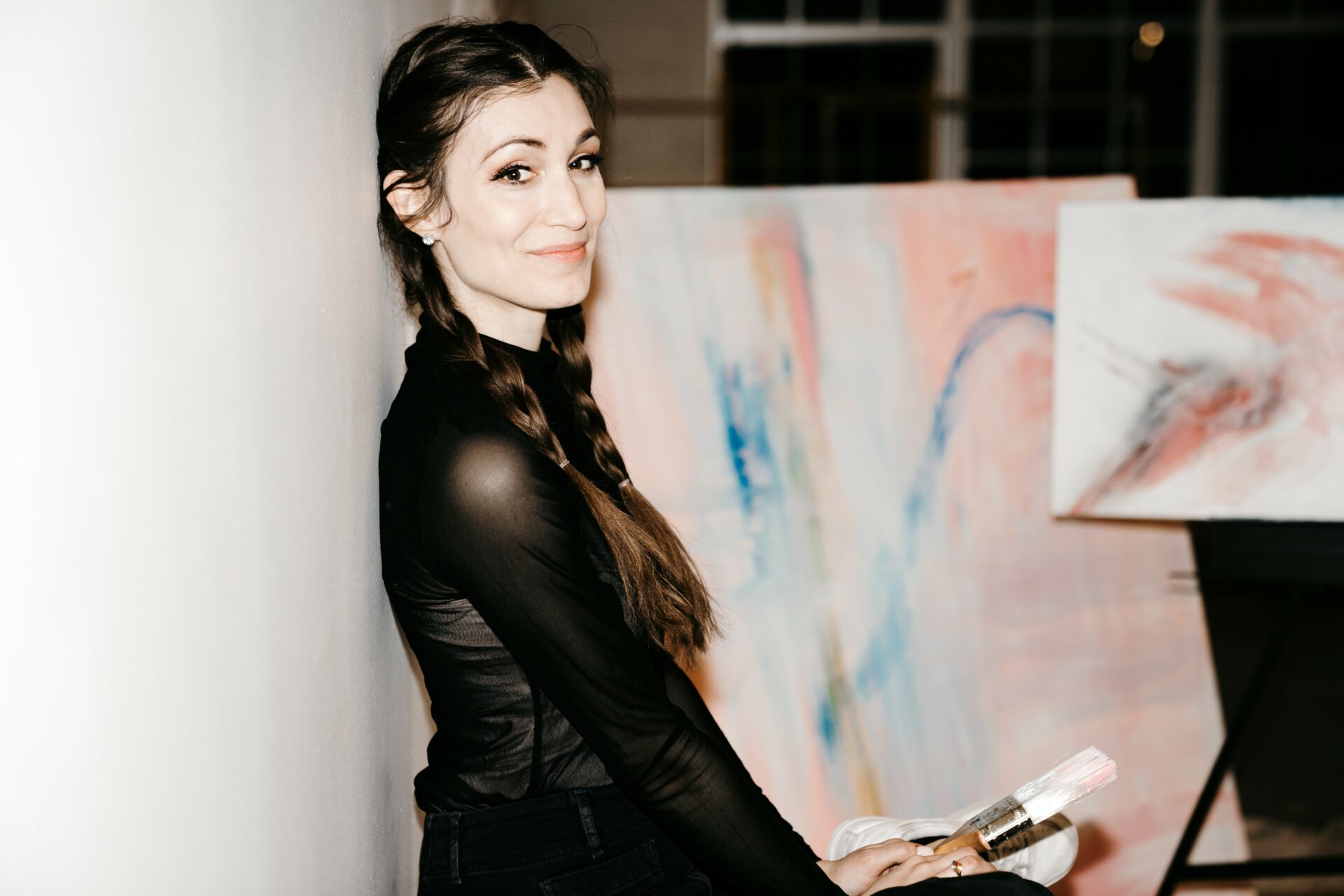We’re excited to introduce you to the always interesting and insightful Sarah Kraning. We hope you’ll enjoy our conversation with Sarah below.
Hi Sarah, thank you so much for opening up with us about some important, but sometimes personal topics. One that really matters to us is overcoming Imposter Syndrome because we’ve seen how so many people are held back in life because of this and so we’d really appreciate hearing about how you overcame Imposter Syndrome.
I’ve definitely dealt with a sense of imposter syndrome over the course of my career. The sense that one has to put in many years of work, without success, before being “qualified” to be a professional artist is something that is ingrained in my brain. My initial career was in the medical and research industry, and this mindset — years of study and work before any payoff — is prevalent.
However, the artistic discipline is different. It is self-expression. When I experienced relative success and virality when I began sharing my synesthesia art, I felt a deep sense of anxiety initially. I didn’t understand why people were interested in my work, when my artwork and experiences of music are something that come naturally to me. Yes, there is definite hard work involved, but I create art in a flow state, and this was a very different energy than in previous “jobs.”
I really began overcoming my imposter syndrome when my mindset shifted about the process of art-making itself. The artists I admire the most, those that I see as highly successful, are those that are boldly themselves and exist in a place of pure self-expression. This is a very challenging place to stay in — it’s difficult to put yourself out there in this way. When I acknowledged to myself that my primary work as an artist was authentic, honest self-expression, my mindset around imposter syndrome shifted dramatically.
Appreciate the insights and wisdom. Before we dig deeper and ask you about the skills that matter and more, maybe you can tell our readers about yourself?
I was born with a rare trait called “synesthesia,” which causes me to experience sounds as colors, patterns, and texture. Music is an especially vibrant experience for me visually, and I’ve been painting my experiences of music and sound since I was little. However, due to the lack of understanding about the trait, I received feedback from a young age that this trait was not something I could talk about. I was met with confused reactions when I’d describe the colors of sound, and so I stopped talking about these experiences by the time I was 9 years old.
I went on to study neuroscience and psychology in college, and it was there that I learned more about my trait and felt empowered to begin sharing this aspect of my life experience again. I began posting some of my music paintings on TikTok, and to my surprise a lot of people resonated with my art and my story. I’ve been fortunate to speak about my experiences with neurodiversity and my path back to my art and to myself at TEDx and in a variety of other settings. It’s my hope that other synesthetes and folks in the neurodivergent community will see my story and feel seen and understood. Finding community is powerful, and for me, discovering that I was not alone completely changed my life. It allowed me to return to my passions (art) and live my life in fuller color.
I’ve gone on to collaborate with musicians to paint their artwork on live stages and collaborate in a variety of other capacities. I’m always looking for new and even more accurate ways to represent my experiences of the world. I think there’s so much power in being curious about the many different ways of perceiving life, and so I use my platform and my artwork to draw awareness to this.
Looking back, what do you think were the three qualities, skills, or areas of knowledge that were most impactful in your journey? What advice do you have for folks who are early in their journey in terms of how they can best develop or improve on these?
The most important aspects of my journey have been self-acceptance, exploration/curiosity, and joy.
I believe that truly impactful artwork requires these three qualities. Artwork is an expression of life experience, and it requires an honest appraisal of one’s life experience. To grow in your artistic abilities and create more impactful work, curiosity and exploration (about the craft and the world around you) is crucial. And lastly, my artwork is inspired from a place of joy. It is a representation of the most beautiful elements of my life — sound and color. When I create from a place of joy, I create artwork I’m proud of.
Okay, so before we go we always love to ask if you are looking for folks to partner or collaborate with?
I’m ALWAYS looking for musicians to collaborate with. I have a deep desire to show musicians how beautiful their music is visually, and to find new and exciting ways to represent the visuals, textures, and movement I experience. I’ve done some collaborations both in digital formats and live stages, but the most deeply fulfilling projects I take on are always with musicians. I’m in awe of the worlds they can create.
Contact Info:
- Website: https://www.sarahkraning.com
- Instagram: https://www.instagram.com/sarahkraning/
- Linkedin: https://www.linkedin.com/in/sarah-kraning
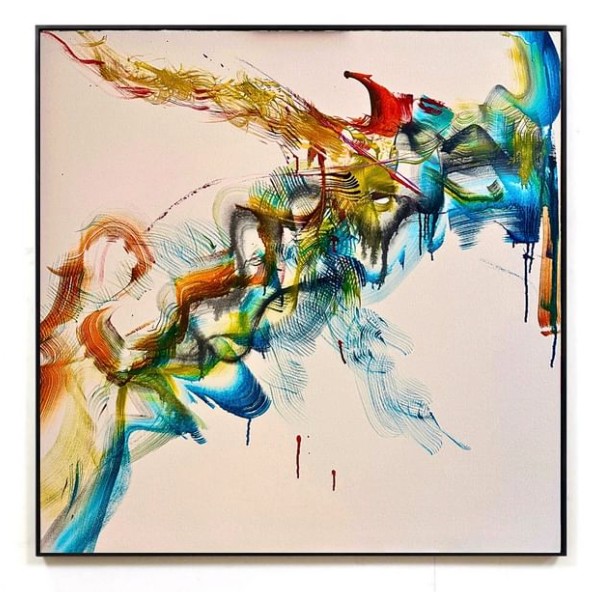
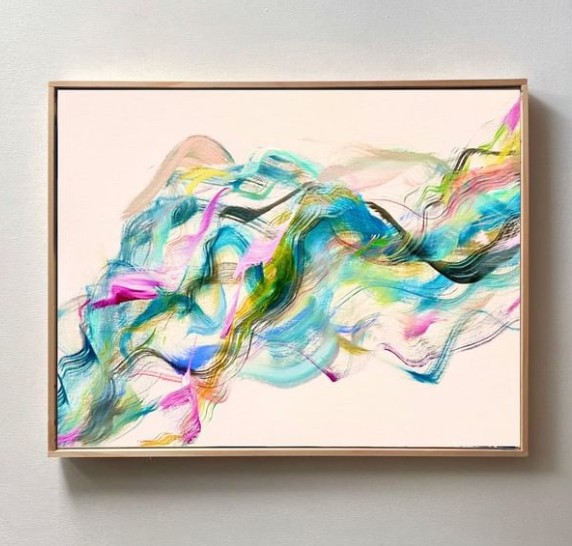
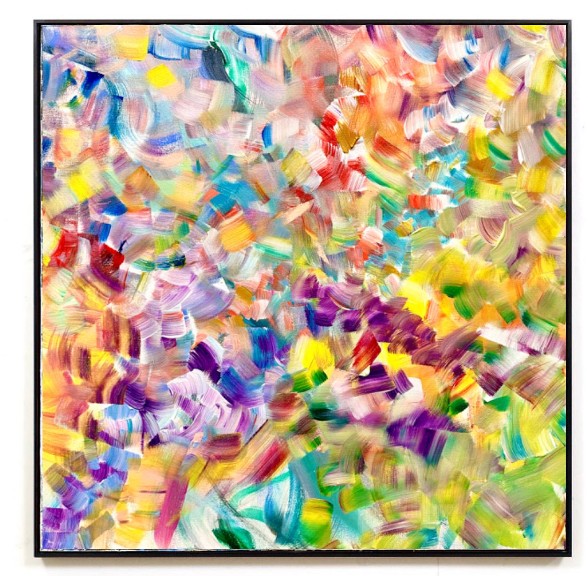
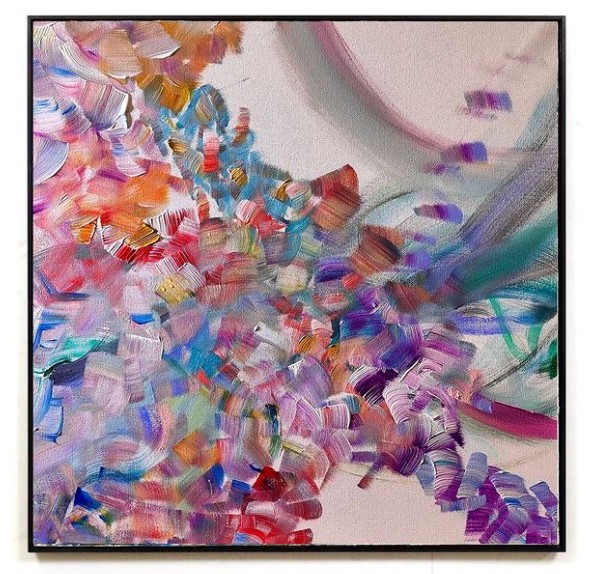
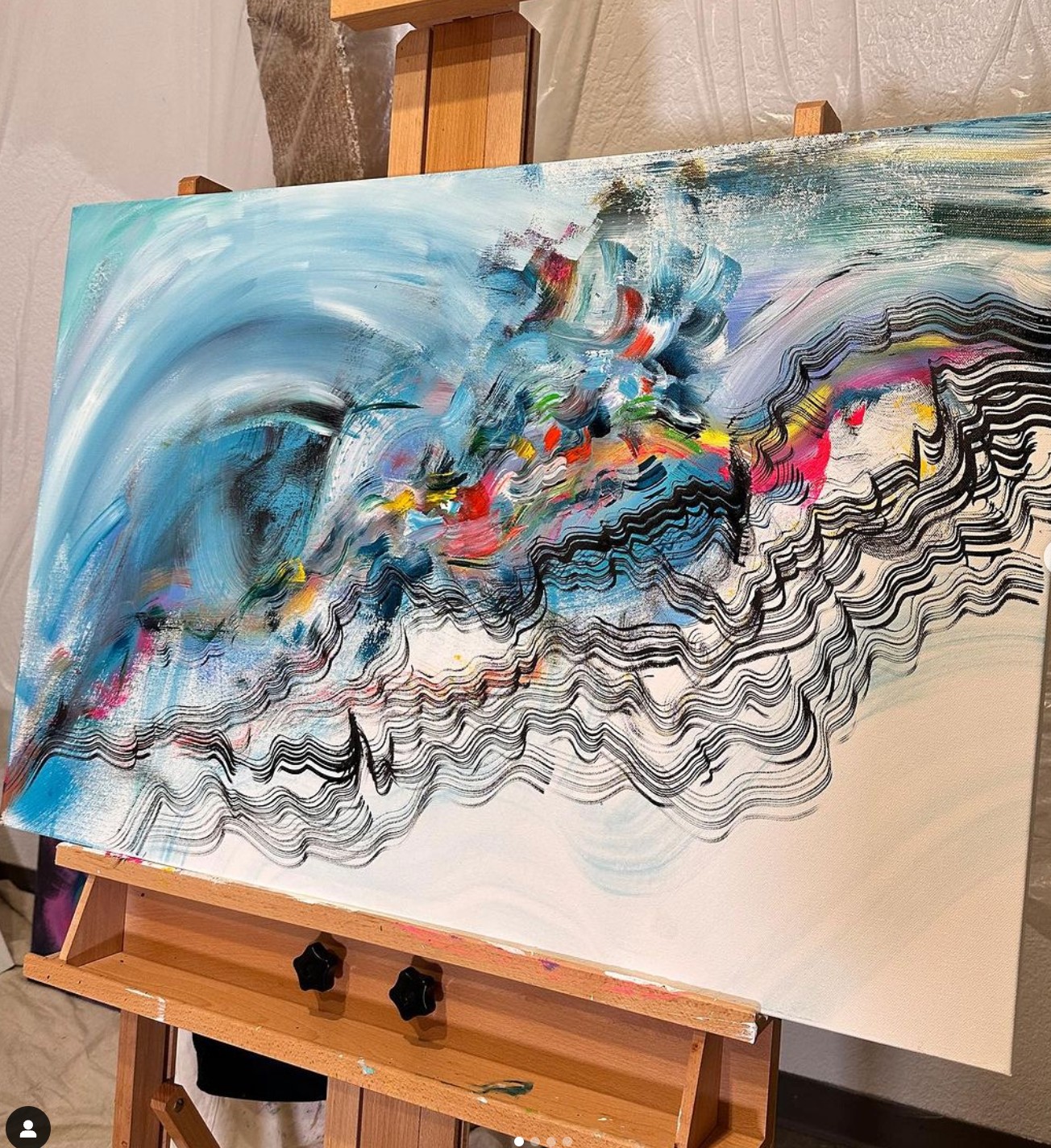
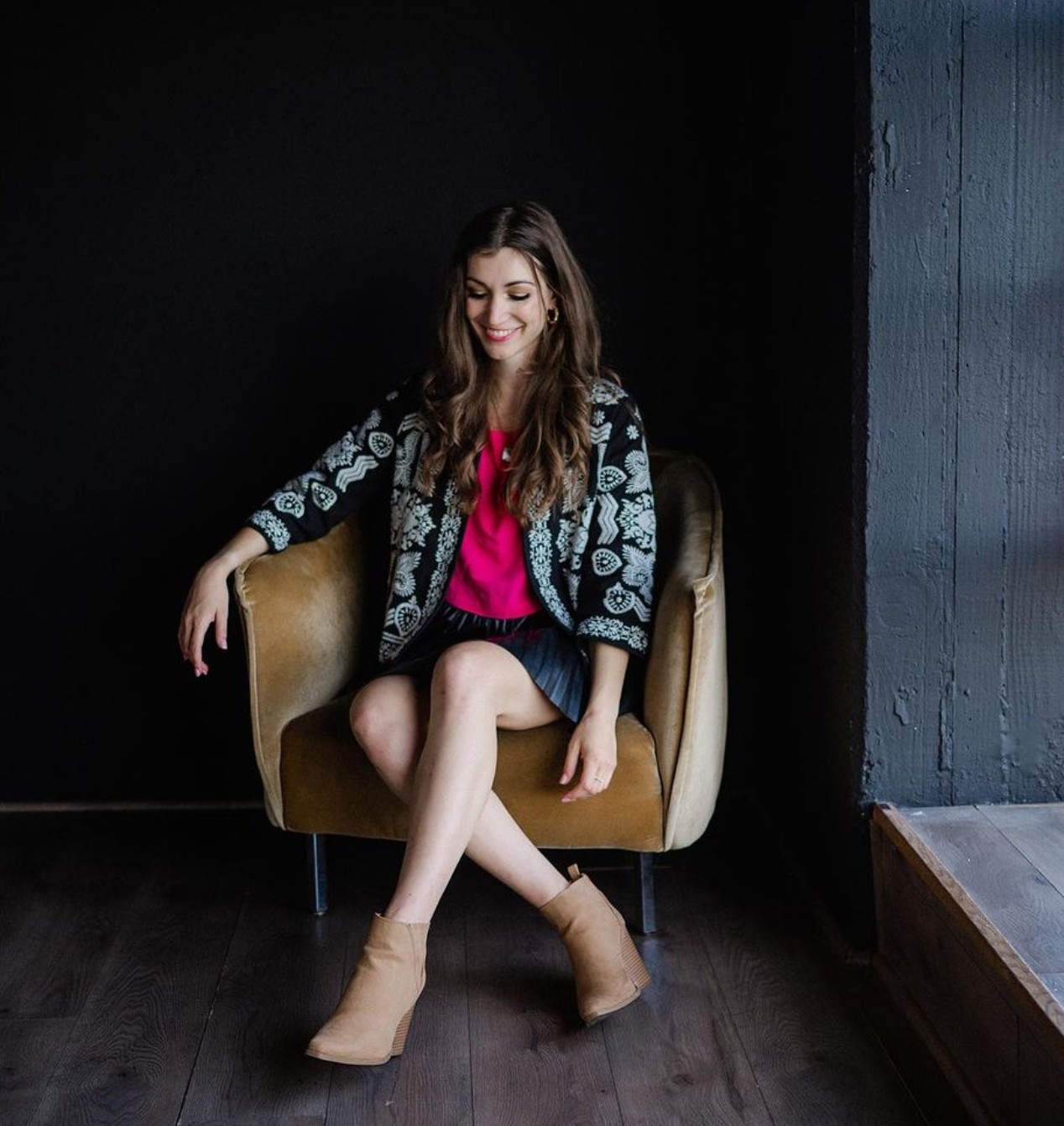
Image Credits
Justin Mark Photography, Michelle Grace Hunder Photography

